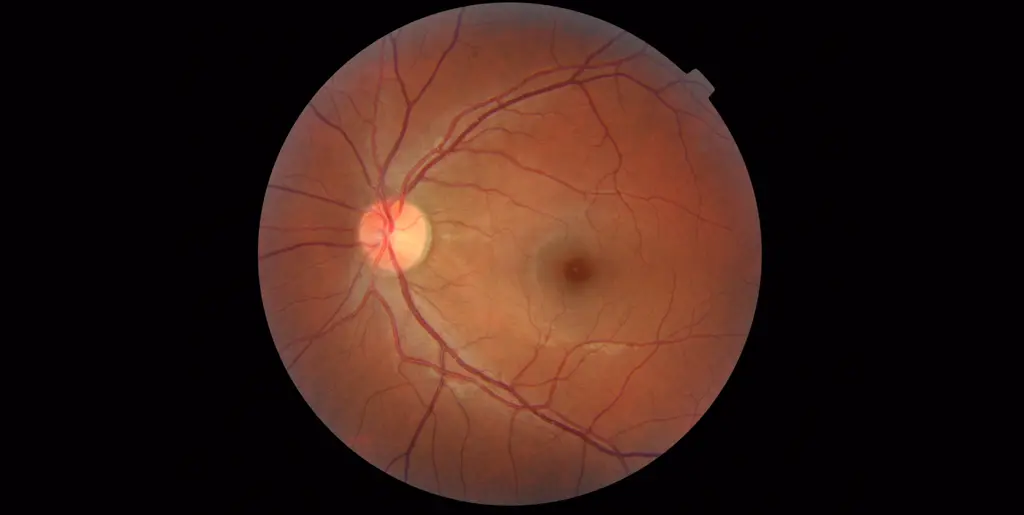
#LIVE2.0 #Review
When it comes to leading causes of blindness in America, Age-Related Macular Degeneration (AMD or ARMD) tops the chart. According to research:

Affecting people physically unveils just one facet of the debilitating effects of AMD; there is the other one, perhaps no less frightening, the financial one. It costs U.S. government a lot of tax payers’ money.
According the same research quoted above:

The reason it is also referred as ‘Age-Related macular Degeneration’ (ARMD) is that it primarily affects people aged 65 and above, though some variations of macular complications can affect younger people as well.
AMD causes damage to the macula, the sensitive region of the retina designated for sharp central vision. Until now, you can find a handful of treatments for AMD but not certain cure.
Unfortunately, AMD led vision loss is so gradual that you will almost always fail noticing anything of significance during the initial phase, especially because it progresses painlessly in the beginning.
Only after certain time period, your vision starts blurring and objects start appearing distorted to you. Sometimes, people suffering from AMD also complain of inability to see certain letters in a word or difficulty in viewing smaller prints. As the condition worsens, your central vision can be grayed out profoundly, with or without alteration in color vision.
Advancing age is considered as the biggest risk factor for any type of AMD. However, there are also a host of others, such as:
Since the symptoms of AMD are too ambiguous to judge by yourself, you better consult professionals for diagnosis of AMD with the help of a comprehensive eye exam under the supervision of an ophthalmologist or optometrist.
Your eye doctor is able to get a magnified view of the macula by means of a comprehensive eye exam, using “Amsler Grid” to locate blind spots, distorted vision or waving lines. They also measure distance and near vision.
Some of the signs that your eye doctor is going to look for the diagnosis of AMD include:
When a person is suspected to be affected by AMD, the eye doctor might go for a fluorescein angiography (FA) or dye-injection. This can be followed with optical coherence tomography (OCT), another diagnostic test. On detection of AMD, you’ll be referred to a retinal specialist.
Unfortunately, AMD lacks a certain treatment, with eye doctors focusing on slowing down its progression rate alternatively, depending upon the stage and intensity of the disease.
A study referred as Age-Related Eye Disease Study (AREDS), states that a significant delay of about 28% was recorded in some people suffering from dry AMD when put on the use of nutritional supplements comprising of nutrients like vitamins C and E, zinc and beta-carotene.
Similarly, treatment of wet AMD involves ways to stop fluid leakage caused by neovascularization. Certain procedures including macular translocation and photocoagulation have been able to produce varying results in treating wet AMD. Moreover, eye doctors also use anti-VEGF (anti-vascular endothelial growth factor) medications for treating wet AMD, whereby the medicine is injected into the eye to counter the formation of new blood vessels.
Here are some simple but effective ways of winning AMD over rather than getting subdued by it:
Say No to Smoking: Because, of all reasons, smokers are two to three times more vulnerable to AMD as compared to those who stay away from smoking, according to research.
Mend Your Food Intake: Research also suggest consuming more of brightly colored fruits and vegetables to make sure you stay away from the dreadfulness of AMD. It’s more like consuming the rainbow in fruits and veggies to keep rainbows in your eyes alive for as long as possible. This is because of the protective and supportive role played by the antioxidants found abundantly in collection of colorful fruits and veggies. Similarly, including fatty fish like salmon and tuna helps in keeping your eyes healthy against ailments like AMD because of the high omega-3 fatty acids.
Get Regular Eye Checkups: Not only shall you get regular checkups from your ophthalmologist and optometrist, keeping track of your overall health, especially blood pressure and cholesterol is also highly advisable. According to NEI, healthy blood pressure and cholesterol levels are helpful in slowing down the progress of AMD.
Consider Appropriate Supplements: Another NEI research reveals the results of a 10-year clinical trial, according to which people affected with moderate AMD reported of 25% lower risk of vision loss when they took a formula comprised of certain antioxidants along with zinc. So, make sure you communicate with your eye doctor about the AREDS formula (based on the Age-Related Eye Disease Study) and evaluate its feasibility for yourself.
Low Vision Aids: If you suffer from significant vision loss due to age-related macular degeneration, don’t shy from consulting eye doctors and low vision centers who can often recommend helpful suggestions as well as specialized products aimed at improving your quality of life and improving some of your functional vision.
These devices can range from anything like high-powered reading glasses (bifocals), hand-held devices for reading, telescopic lenses, magnifiers as well as closed-circuit televisions. Some other specialized products for low vision inflicted by AMD include books with large prints, clocks with large numbers and stove dials and electronic talking devices.
Most of all, perhaps, you can be relieved by tech-based low vision aids, which resort to latest VR technology to enhance your vision, hold the potential to dramatically improve your vision.
Support
See and Connect Today!
IrisVision Global, Inc.
5994 W. Las Positas Blvd, Suite 101
Pleasanton, CA 94588
Email: [email protected]
Support: +1 855 207 6665
Support
See and Connect Today!
IrisVision Global, Inc.
5994 W. Las Positas Blvd, Suite 101
Pleasanton, CA 94588
USA Email: [email protected]
Support: +1 855 207 6665
Support
See and Connect Today!
IrisVision Global, Inc.
5994 W. Las Positas Blvd, Suite 101
Pleasanton, CA 94588
Email: [email protected]
Support: +1 855 207 6665